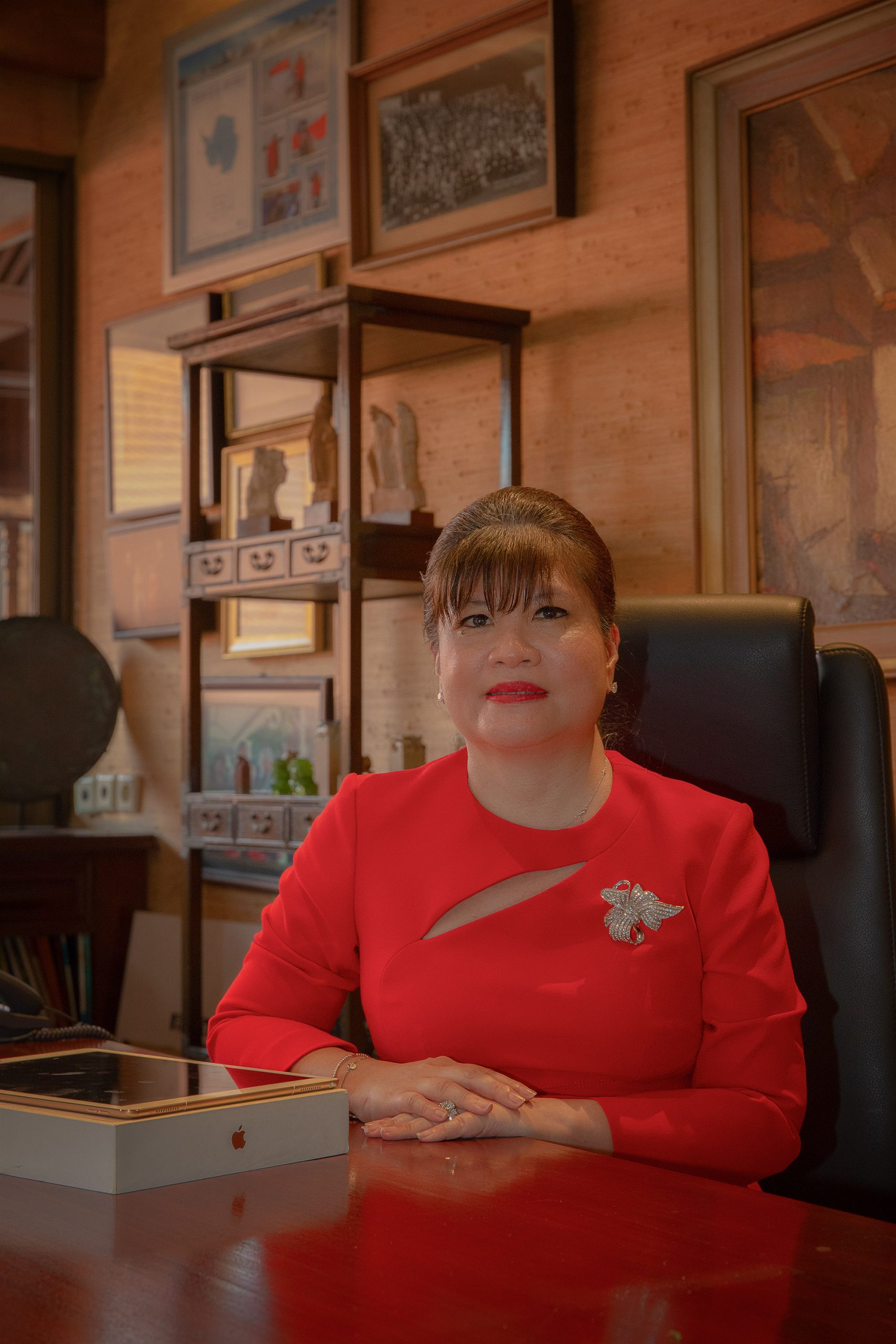CEO of Sintesa Group and Founder of Angel Investment Network Indonesia (ANGIN)
CEO of one of the renowned strategic investment enterprises, Shinta Kamdani is the brain behind numerous pioneering programs and institutions in Indonesia supporting women entrepreneurship and gender equality in the workplace, including the country’s first Women Fund and the Indonesian Business Coalition for Women Empowerment (IBCWE).
Shinta’s entrepreneurial mindset was cultivated from the youngest age – selling educational books door-to-door at only 13 years old. Eldest of a family with two daughters, she was early prepared to inherit the enterprise built by her father, spending weekends and summer holidays at her father’s office to drill her business skills.
But Shinta climbed the corporate ladder by herself, determined to be more than the “daughter of the boss”. From her first position in the family business as an employee in the marketing division, she gradually rose through the ranks to eventually become Managing Director in 1998.
As one of the few women CEOs in Indonesia in the late 1990s, Shinta had to carve out her place in a male-dominated business environment, developing a management style of her own. While leadership often implies individual ambition, she built a corporate culture that emphasizes collective participation and inclusion, binding together the values of excellence and empowerment. Ignoring comments when breastfeeding her child in between meetings, she proved that being a mother and a successful business leader were not incompatible roles. Today, Sintesa Group provides lactation rooms to its women employees, and is the first business group in Indonesia to receive the Economic Dividend for Gender Equality (EDGE) certification.
Being an ethnic-Chinese non-Muslim, and a woman leader in Indonesia, Shinta had an acute sense of her “triple minority”. In May 1998, an economic crisis hit and violent riots targeting Indonesian Chinese entrepreneurs took place. As many lost out, she stepped in. What started as a philanthropic action, eventually became a full microfinance and mentoring program supporting early-stage enterprises. Along the journey, she became aware of persisting gender inequalities in access to finance, especially in rural areas, where various collateral and social constraints deprive women of personal financing and credit facilities. Realizing that she could use purposefully her high-level position and influential connection, she gathered 15 female HNWIs to pioneer the first Women Fund in Indonesia, with backing of the Angel Investment Network Indonesia (ANGIN). Until now, the fund has successfully empowered five enterprises led/owned by women, including the first plant-based restaurant chain and the first bean-to-bar enterprise in Indonesia,
Year after year, Shinta relentlessly mobilized her personal network to bring more men and women into the discussion, creating various institutions to spark effective collaboration between ecosystem stakeholders. Building stronger synergies between all the stakeholders is essential to bring significant gender-transformative change. “Until now, most of my job has consisted of creating linkages between the right people,” she recalls. She leverages her international network to scale the “gender lens space” and is engaged with government-level bodies as a member of the APEC Business Advisory Council (ABAC).
Today, the Indonesia Business Coalition for Women Empowerment (IBCWE) that Shinta currently presides over supports more than 30 member enterprises to design women-friendly workplace policies, providing them with advisory services, mentoring and an inter-corporate network for good-practice sharing.
Shinta insists on the importance of considering gender equality across the business spectrum. “There is a large misconception among investors, that gender lens investing will limit them to niche market segments or microfinance activities. On the contrary, it is a grid to unlock the full potential of women, at all levels of the economy”.





